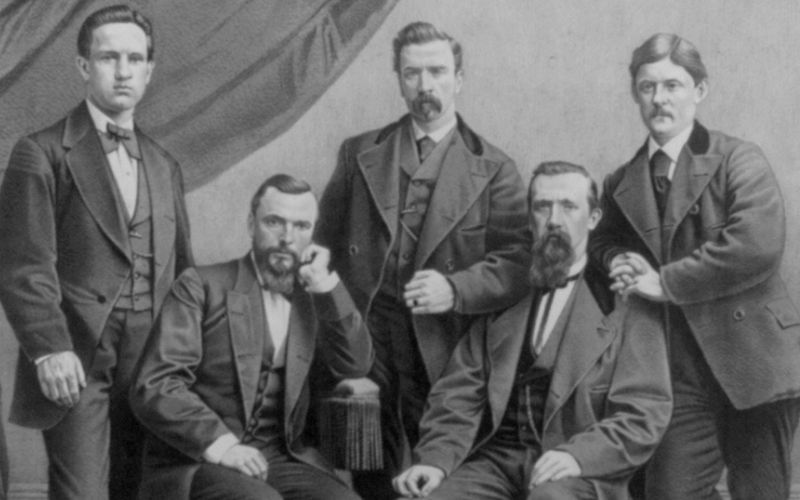| Police outside Links creche in Abington, Malahide, Dublin |
The main story dominating the news here for the past week has not been about politics or the financial crisis or austerity cutbacks. It's been about children, and how we in Ireland care for them in creches or what Americans call day care centers.
The sudden, intense interest in the subject was sparked by the broadcast of a TV investigation a week ago in which concealed cameras captured what was going on in three creches in the greater Dublin area.
The hour-long Prime Time program on RTE was shocking and disturbing. It showed toddlers, aged one to three, being roughly handled, shouted at, locked in a dark room, forced to sit at a table with nothing to do, thrown down on floor mattresses and ordered to sleep even though some were clearly not tired.
The toddlers were being looked after by staff who appeared to be mainly teenagers with no empathy for young children, and no idea how to look after them.
It was very disturbing to watch, particularly at naptime when some kids who did not want to sleep were picked up and slammed down on their mattresses with considerable force. This was accompanied by blankets thrown on their faces and shouted orders to sleep.
Most upsetting, however, was not the children who were crying and miserable, but the mute little ones who had learned the regime and sat in silence staring into the distance, detaching themselves from what was going on around them.
Anyone who knows even the minimum about early years care of children knows how damaging this can be.
Equally, most parents will know the panic that can result from a toddler being locked on his or her own in a dark room even for a few minutes as punishment.
At that early age, a child has no reference point, no ability to compute time or space. Only the present moment matters, and a few minutes may be an eternity. Screaming panic can be the result, which may cause lasting damage.
The program had been preceded by a publicity build up in the days before it was aired so a hug audience was watching across Ireland, including thousands of parents who send their young kids to creches every day while they go to work.
As I said, it was deeply shocking and disturbing viewing, so traumatizing for some parents that they skipped work the following day so that they could keep their toddlers at home until they could get reassurances from their creches that the same thing was not happening there.
Since then, official Ireland has swung into action, not actually doing much of course, apart from making speeches saying how shocking it all was, how there needs to be a thorough investigation and how new rules for creche inspections, staff training and so on need to be put in place without delay.
The irony of the situation is that we even have a minister for children in the present government, an experienced politician (and mother), Frances Fitzgerald, who did a good job of looking shocked and deeply concerned.
No doubt she was, and rightly so, particularly since this appalling situation had been exposed on her watch.
Some of the creche workers shown on camera have been fired or suspended, and an investigation is underway. But starting a witch hunt against these teenagers -- even if they seemed to be lacking in the basic compassion for kids that should be normal and does not depend on training -- is not the answer.
The problem is much more fundamental than that. It has more to do with what has happened with child care in Ireland (and elsewhere as well) in recent years.
When the Celtic Tiger (there's a phrase you never hear these days) got going over 10 years ago we had a shortage of workers. It became official policy to encourage women to work outside the home.
As the boom went on and prices soared, for most couples the reality was that it took two incomes to buy and run a home. So the element of choice for young mothers was gone anyway. The reality was that they had to work, rather than that they chose to work.
The result was a huge demand for pre-school childcare, usually called creches here. The government stepped in, offering grants and tax breaks and setting up and running creches became a business.
Some working parents were able to do it the old way, finding a neighboring woman who would look after kids, or even hiring a child minder to come in and work for them.
But for many parents the new creche chains, with their shiny logos and cute names like Giraffe, became the norm.
With property prices forcing young couples to buy homes a long way from their workplaces and do a long daily commute, small children, even babies, were being left in creches for very long days.
Thinking back now, it was asking for trouble. The money from the government went into buildings, not training.
The government introduced basic rules for creches, for staff training and minimum staff numbers, and for an inspection regime (the reality was anyone could open a creche, many new creches were open for a year or a lot longer before they got any inspection, and little or no training was required for the majority of staff, most of whom were teenagers).
The three creches featured in the Prime Time investigation were all part of the new creche chains. These are major businesses which have got a lot of government money, are making substantial profits and pay the ordinary staff not much more than the legal minimum wage. It's a business, rather than a caring operation.
This is not to excuse the behavior of some of the staff shown in the TV investigation, which was truly appalling. But looking after small kids has never been an easy job.
As the father of twin boys whose mother went back to work three weeks after they arrived, I can vouch for that (and I had lots of help).
Being a rocket scientist is easy peasy in comparison with looking after a few toddlers at home on a long, wet afternoon when you can't get out and everyone is a bit cranky. Minding and entertaining a few toddlers like that requires huge reserves of creativity and energy as well as understanding.
And I'm talking here about your own kids. For a few teenagers attempting to look after a roomful of kids with whom they have no real connection, it's even harder to summon up the patience, effort and concentration required.
That's why training is so important. Although it's not clear that more training would have avoided what we saw on our TV screens last week, since personality and aptitude are also important.
Looking after kids, like other "caring" professions such as nursing, is not just "a job."
The revelations in the TV program have shaken the country here and made everyone think carefully about what we are doing to our kids. Do we have any idea what they go through in their creches during a long day?
There have been calls for an official investigation, for new legislation, for much higher training for creche staff, for increased inspections, for CCTV cameras so that parents can monitor what is happening during the day and so on.
A raft of new rules and regulations are likely to be introduced which will make childcare even more expensive, and still may not solve the fundamental problem. But that's what official Ireland does.
It's like some of the present rules which may stop a woman from opening a small creche in her home for a few neighbors' kids because she does not have separate bathrooms or other facilities deemed essential by officialdom.
We're very good at writing high-minded rules and regulations after the event such as this and our politicians are excellent at producing complicated reports on problems like this one when it is too late.
Implementing regulations and following through are things we're not good at in Ireland.




Comments